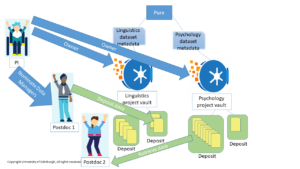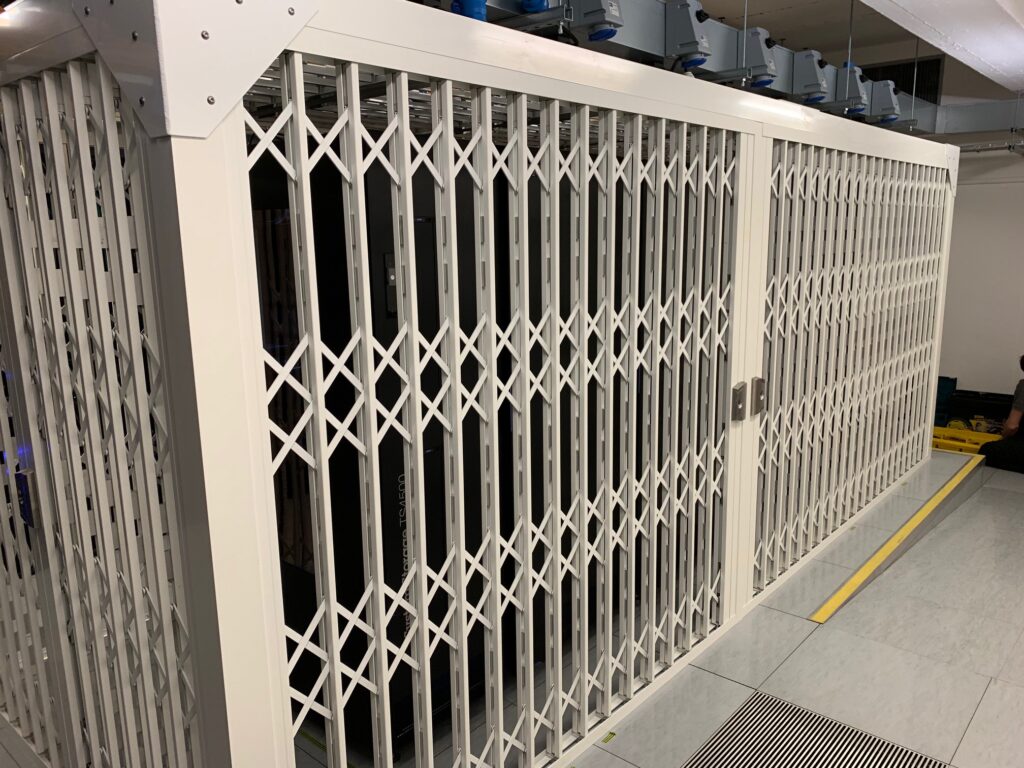New deposit size limit: 10TB
Great news for DataVault users: you can now deposit up to a whopping ten terabytes in a single deposit in the Edinburgh DataVault! That’s five times greater than the previous deposit limit, saving you time that might have been wasted splitting your data artificially and making multiple deposits.
It’s still a good idea to divide up your data into deposits that correspond well to whatever subsets of the dataset you and your colleagues are likely to want to retrieve at any one time. That’s because you can only retrieve a single deposit in its entirety; you cannot select individual files in the deposit to retrieve. Smaller deposits are quicker to retrieve. And remember you’ll need enough space for the retrieved data to arrive in.
We’ve made some performance improvements thanks to our brilliant technical team, so depositing now goes significantly faster. Nonetheless, please bear in mind that any deposit of multiple terabytes will probably take several days to complete (depending on how many deposits are queueing and some characteristics of the fileset), because the DataVault needs time to encrypt the data and store it on the tape archives and into the cloud. Remember not to delete your original copy from your working area on DataStore until you receive our email confirming that the deposit has completed!
And you can archive as many deposits as you like into a vault, as long as you have the resources to pay the bill when we send you the eIT!
A reminder on how to structure your data:
https://www.ed.ac.uk/information-services/research-support/research-data-service/after/datavault/prepare-datavault/structure
Ensuring good stewardship of your data through the review process
Another great feature that’s now up and running is the review process notification system, and the accompanying dashboard which allows the curators to implement decisions about retaining or deleting data.
Vault owners should receive an email when the chosen review date is six months away, seeking your involvement in the review process. The email will provide you with the information you need about when the funder’s minimum retention period (if there is one) expires, and how to access the vault. Don’t worry if you think you might have moved on by then; the system is designed to allow the University to implement good stewardship of all the data vaults, even when the Principal Investigator (PI) is no longer contactable. Our curators use a review dashboard to see all vaults whose review dates are approaching, and who the Nominated Data Managers (NDMs) are. In the absence of the Owner, the system notifies the NDMs instead. We will consult with the NDMs or the School about the vault, to ensure all deposits that should be deleted are deleted in good time, and all deposits that should be kept longer are kept safe and sound and still accessible to all authorised users.
DataVault Review Process:
https://www.ed.ac.uk/information-services/research-support/research-data-service/after/datavault/review-process

The new max. deposit size of 10 TB is equivalent to over five million images of around 2 MB each – that’s one selfie for every person in Scotland. Image: A selfie on the cliffs at Bell Hill, St Abbs
cc-by-sa/2.0 – © Walter Baxter – geograph.org.uk/p/5967905
—
Pauline Ward
Research Data Support Assistant
Library & University Collections


